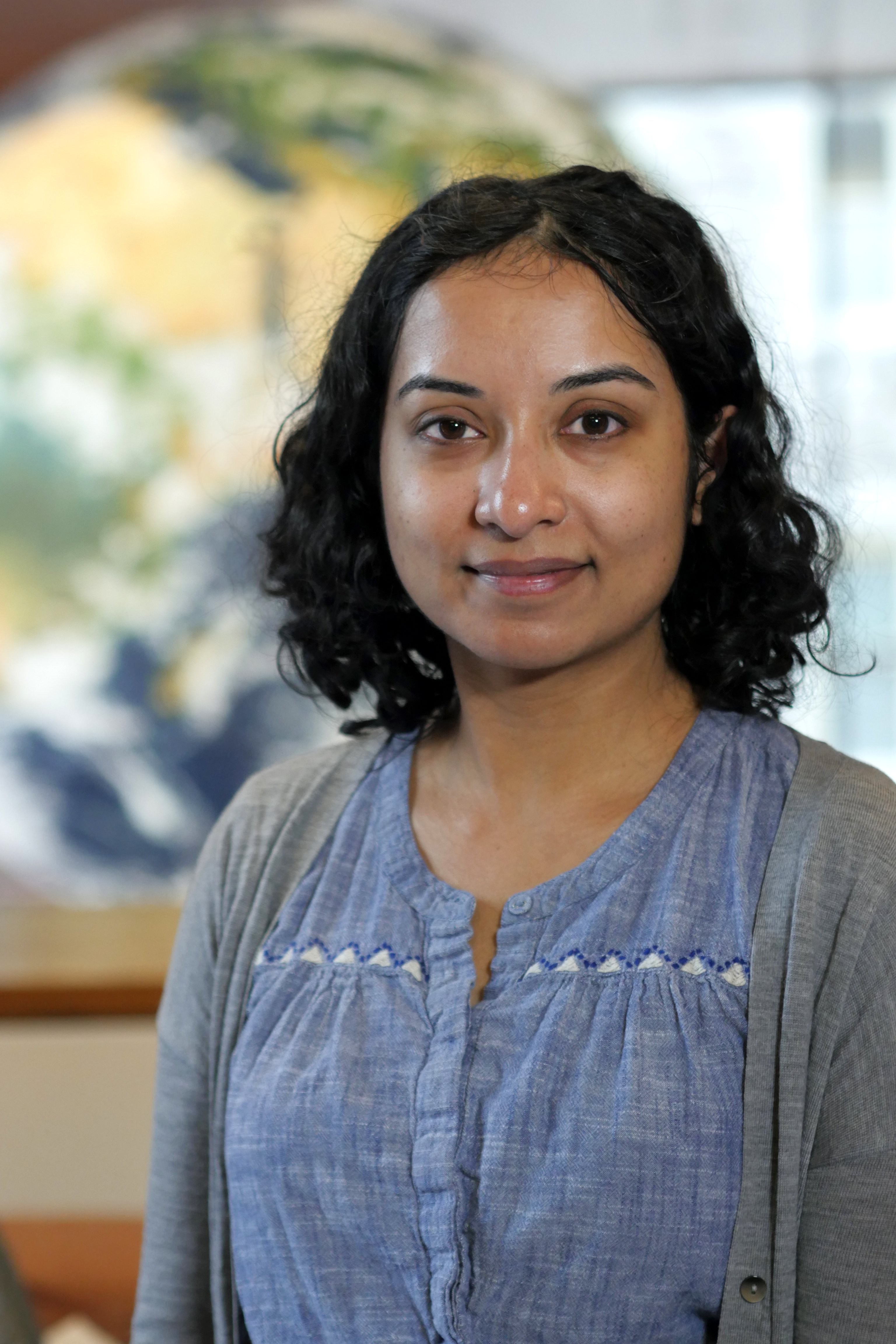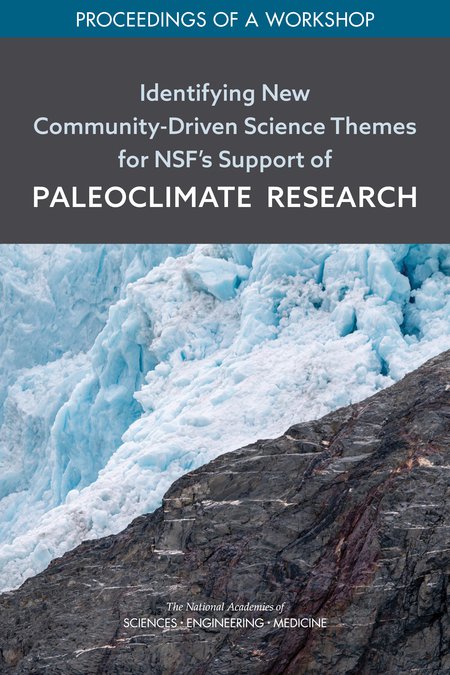EES Professor Part of Expert Committee Helping to Shape the Future of Paleoclimate Research
Thonis Family Professor Tripti Bhattacharya served on a panel of paleoclimatologists who provided input for a report distributed by the National Academies of Sciences, Engineering, and Medicine.

Tripti Bhattacharya, Thonis Family Professor of Earth and environmental sciences (EES), served as one of eight leading climate scholars at a workshop organized by the National Academies of Sciences, Engineering, and Medicine (NASEM). The goal of the collaboration was to identify potential future paleoclimate research directions that will help advance understanding of current and future change in the Earth’s climate system. The results, recently featured in a research report distributed by NASEM, will help shape funding through the National Science Foundation and spark important discussions about the future of paleoclimate research.
Bhattacharya, who has taught at Syracuse since 2018, was nominated to be on the panel by members of the international paleoclimate science community. The group’s discussions led to a report highlighting emerging scientific areas of interest to paleoclimatologists, including hydroclimate during past warm periods; connections between the biosphere, marine and terrestrial ecosystems; and the carbon cycle, which is the exchange of carbon between reservoirs stored in rocks, living matter, the ocean and the atmosphere. The burning of fossil fuels has accelerated the amount of carbon being released into the atmosphere and is disrupting the carbon cycle’s balance. The panel emphasized the significance of focusing future research on human-relevant timescales and extreme events to make paleoclimate research more relevant to the nexus of science and decision-making.

“The committee was given a huge task – to identify new directions for research in our field to shape future funding priorities,” says Bhattacharya. “It is humbling and also an honor that I was able to have a voice in that process.”
As a paleoclimatologist, Bhattacharya uses environmental evidence to understand how rainfall will change in the future as a result of global warming. While rainfall has a profound effect on societies, it is one of the least understood aspects of future climate changes, says Bhattacharya, whose work on the subject has been published in journals including Nature Geoscience, Science, and Proceedings of the National Academy of Sciences.
“This year alone, we’ve seen how extreme droughts can result in devastating fires or stresses on water resources, and we’ve also seen how extreme rainfall can cause flooding,” she says. “All of these events have a real human cost. Paleoclimate can be used to better understand the processes that shape regional rainfall, giving us a better sense of the changes we might see in the future.”
According to Bhattacharya, the paleoclimate research in EES – both nationally and internationally recognized – encompasses many scientific areas deemed significant in the NASEM report. These include studies related to ice sheets, rainfall, and the interactions between the biosphere (e.g., life on earth) and the climate system.
“All of these themes are specifically highlighted as major areas where we need more research in order to understand our changing planet,” Bhattacharya says. “These findings highlight the importance of the climate research happening here at Syracuse and demonstrate how the University is well positioned to be a leading paleoclimate research institution well into the future.”
Bhattacharya was joined on the committee with Chair Andrea Dutton (University of Wisconsin-Madison), Julie Brigham-Grette (University of Massachusetts-Amherst), Christo Buizert (Oregon State University), Natalie Burls (George Mason University), Sarah Feakins (University of Southern California), Isabel P. Montanez (University of California, Davis) and Kaustubh Thirumalai (University of Arizona).
Read the full report, Identifying New Community-Driven Science Themes for NSF's Support of Paleoclimate Research.
The National Academies of Sciences, Engineering, and Medicine are private, nonprofit institutions that provide expert advice on some of the most pressing challenges facing the nation and world. Their work helps shape sound policies, inform public opinion, and advance the pursuit of science, engineering, and medicine.
Featured
Tripti Bhattacharya Thonis Family Professor: Paleoclimate Dynamics. Associate Professor.
